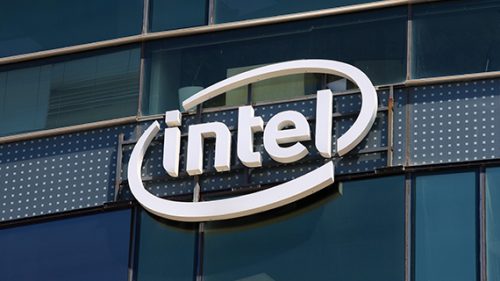
Intel has been granted a reprieve as the US Court of Appeals for the Western District of Texas Federal Circuit reversed a 2021 jury’s conclusion that Intel had infringed on patents held by VLSI. This decision has compelled Intel to delay paying the substantial $2.18 billion in damages initially awarded for alleged misuse of VLSI’s patents.
The legal battle between Intel and VLSI, a semiconductor intellectual property holder known for its litigious nature, has taken another twist. While the appeals court reversed the infringement decision on one of the patents, it upheld the violation on the other. As a result, the case is slated to return to the Lone Star State for a fresh trial to determine the accurate amount Intel owes VLSI for the use of its patented technologies.
Intel has been granted a reprieve as the US Court of Appeals for the Western District of Texas Federal Circuit reversed a 2021 jury’s conclusion that Intel had infringed on patents held by VLSI. This decision has compelled Intel to delay paying the substantial $2.18 billion in damages initially awarded for alleged misuse of VLSI’s patents.
The patents at the center of this dispute pertain to crucial technologies embedded in Intel’s third-gen Ivy Bridge and sixth-gen Skylake processor series. These patents specifically address the tracking of the minimum voltage required to drive memory (Patent 373) and methodologies for controlling clock speeds (Patent 759).
Read more: Intel Partners Up With Arm On Chip Manufacturing
VLSI had initially sought a significant $1.5 billion and $675 million for the respective use of these patents. In 2021, a Waco, Texas jury sided with VLSI, affirming that Intel had indeed infringed upon the company’s patents. However, the recent decision by the appeals court has thrown the outcome into uncertainty.
Intel’s legal team now faces the challenge of presenting their case anew in the upcoming trial. The outcome of this retrial will not only determine the financial liability for Intel but also shed light on the intricacies of patent infringement in the highly competitive semiconductor industry.
The twists and turns in this legal saga highlight the complexity and significance of intellectual property disputes within the technology sector. As Intel navigates this legal labyrinth, the repercussions of the case could extend beyond the immediate financial impact, influencing the strategies and practices of major players in the semiconductor arena. The technology community awaits the resolution of this high-stakes patent dispute, which could have far-reaching implications for the industry landscape.
Source: Reuters
Featured News
Big Tech Braces for Potential Changes Under a Second Trump Presidency
Nov 6, 2024 by
CPI
Trump’s Potential Shift in US Antitrust Policy Raises Questions for Big Tech and Mergers
Nov 6, 2024 by
CPI
EU Set to Fine Apple in First Major Enforcement of Digital Markets Act
Nov 5, 2024 by
CPI
Six Indicted in Federal Bid-Rigging Schemes Involving Government IT Contracts
Nov 5, 2024 by
CPI
Ireland Secures First €3 Billion Apple Tax Payment, Boosting Exchequer Funds
Nov 5, 2024 by
CPI
Antitrust Mix by CPI
Antitrust Chronicle® – Remedies Revisited
Oct 30, 2024 by
CPI
Fixing the Fix: Updating Policy on Merger Remedies
Oct 30, 2024 by
CPI
Methodology Matters: The 2017 FTC Remedies Study
Oct 30, 2024 by
CPI
U.S. v. AT&T: Five Lessons for Vertical Merger Enforcement
Oct 30, 2024 by
CPI
The Search for Antitrust Remedies in Tech Leads Beyond Antitrust
Oct 30, 2024 by
CPI